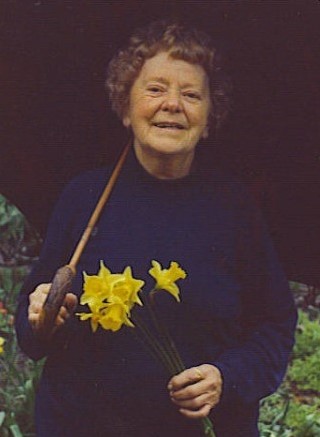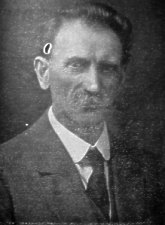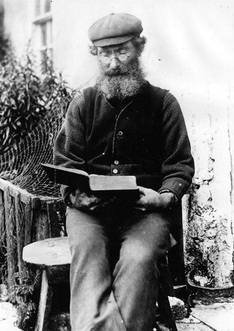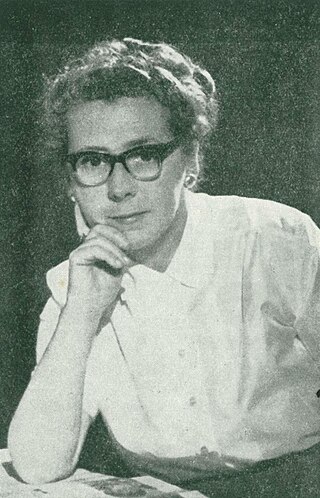
The Manx Labour Party is a political party on the Isle of Man that was founded in 1918.

Manx English, or Anglo-Manx, is the historic dialect of English spoken on the Isle of Man, though today in decline. It has many borrowings from Manx, a Goidelic language, and it differs widely from any other variety of English, including dialects from other areas in which Celtic languages are or were spoken, such as Welsh English and Hiberno-English.

Hop-tu-Naa is a Celtic festival celebrated in the Isle of Man on 31 October. It is the celebration of the traditional Celtic festival of Samhain, the start of winter. It is thought to be the oldest unbroken tradition in the Isle of Man.
Cammag is a team sport originating on the Isle of Man. It is closely related to the Scottish game of shinty and the Irish game of hurling. Once the most widespread sport on Mann, it ceased to be played in the early twentieth century after the introduction of association football and is no longer an organised sport.
John Joseph Kneen was a Manx linguist and scholar renowned for his seminal works on Manx grammar and on the place names and personal names of the Isle of Man. He is also a significant Manx dialect playwright and translator of Manx poetry. He is commonly best known for his translation of the Manx National Anthem into Manx.

Mona Douglas was a Manx cultural activist, folklorist, poet, novelist and journalist. She is recognised as the main driving force behind the modern revival of Manx culture and is acknowledged as the most influential Manx poet of the 20th century, but she is best known for her often controversial work to preserve and revive traditional Manx folk music and dance. She was involved in a great number of initiatives to revive interest and activity in Manx culture, including societies, classes, publications and youth groups. The most notable and successful of these was Yn Chruinnaght.

Josephine Kermode (1852–1937) was a Manx poet and playwright better known by the pen name "Cushag".

Christopher R. Shimmin (1870–1933), Manx playwright and MHK.

The Reih Bleeaney Vanannan is the Isle of Man's most prestigious annual award for culture. It is presented by Culture Vannin to the person or group who, in the opinion of the panel of assessors, has made the most outstanding contribution to Manx culture. It is officially presented by the President of Culture Vannin, normally in January each year.

Edward Faragher (1831–1908), also known in Manx as Ned Beg Hom Ruy, was a Manx language poet, folklorist and cultural guardian. He is considered to be the last important native writer of Manx and perhaps the most important guardian of Manx culture during a time when it was most under threat. The folklorist, Charles Roeder, wrote that Faragher had "done great services to Manx folklore, and it is due to him that at this late period an immense amount of valuable Manx legends have been preserved, for which indeed the Isle of Man must ever be under gratitude to him."

Culture Vannin is the trading name for the Manx Heritage Foundation, established in 1982 by the Isle of Man Government to promote Manx culture, heritage and language. It was rebranded in February 2014, having previously been known as the "Manx Heritage Foundation", since the former title "held connotations more towards the cultural history of the island" which were not felt to be accurate to the organisation's progressive approach to invigorating Manx culture. Culture Vannin's motto is "Taking our culture forward".

The Peel Players were an amateur theatre group from the Isle of Man in operation during the 1910s and specialising in Anglo-Manx dialect productions.

Kathleen Faragher (1904–1974) was the most significant and prolific Manx dialect writer of the mid twentieth century. She is best known for her poems first published in the Ramsey Courier and collected into five books published between 1955 and 1967. She was also a prolific short story writer and playwright. Her work is renowned for its humour born of a keen observation of Manx characters, and for its evocative portrayal of the Isle of Man and its people.

Yn Çheshaght Ghailckagh, also known as the Manx Language Society and formerly known as Manx Gaelic Society, was founded in 1899 in the Isle of Man to promote the Manx language. The group's motto is Gyn çhengey, gyn çheer.

The Charm is a comic one-act Manx dialect play by Christopher R. Shimmin. It was first performed in 1912 by the Peel Players and it is considered to be one of the earliest and most frequently performed pieces in the Manx dialect repertoire.
Thomas Dodd (1883–1963) was a Manx dialect performer, a member of The Peel Players and a student of the Manx language.

All Saints Church, Douglas, Isle of Man, is a 1967 Modernist Anglican church which closed in May 2017.
Rinkaghyn Vannin is an important book of 28 Manx dances, mostly collected by Mona Douglas, which was published in 1983 by Sleih gyn Thie.
Edmund Evans Greaves Goodwin was a Manx language scholar, linguist, and teacher. He is best known for his work First Lessons in Manx that he wrote to accompany the classes he taught in Peel.
Constance Radcliffe was a Manx historian who wrote primarily about the history of the parish of Maughold and the town of Ramsey, both in the north of the Isle of Man. In 1989 Radcliffe was awarded the Reih Bleeaney Vanannan in recognition of her contribution to Manx culture, and was a recipient of the MBE in 1996.
















